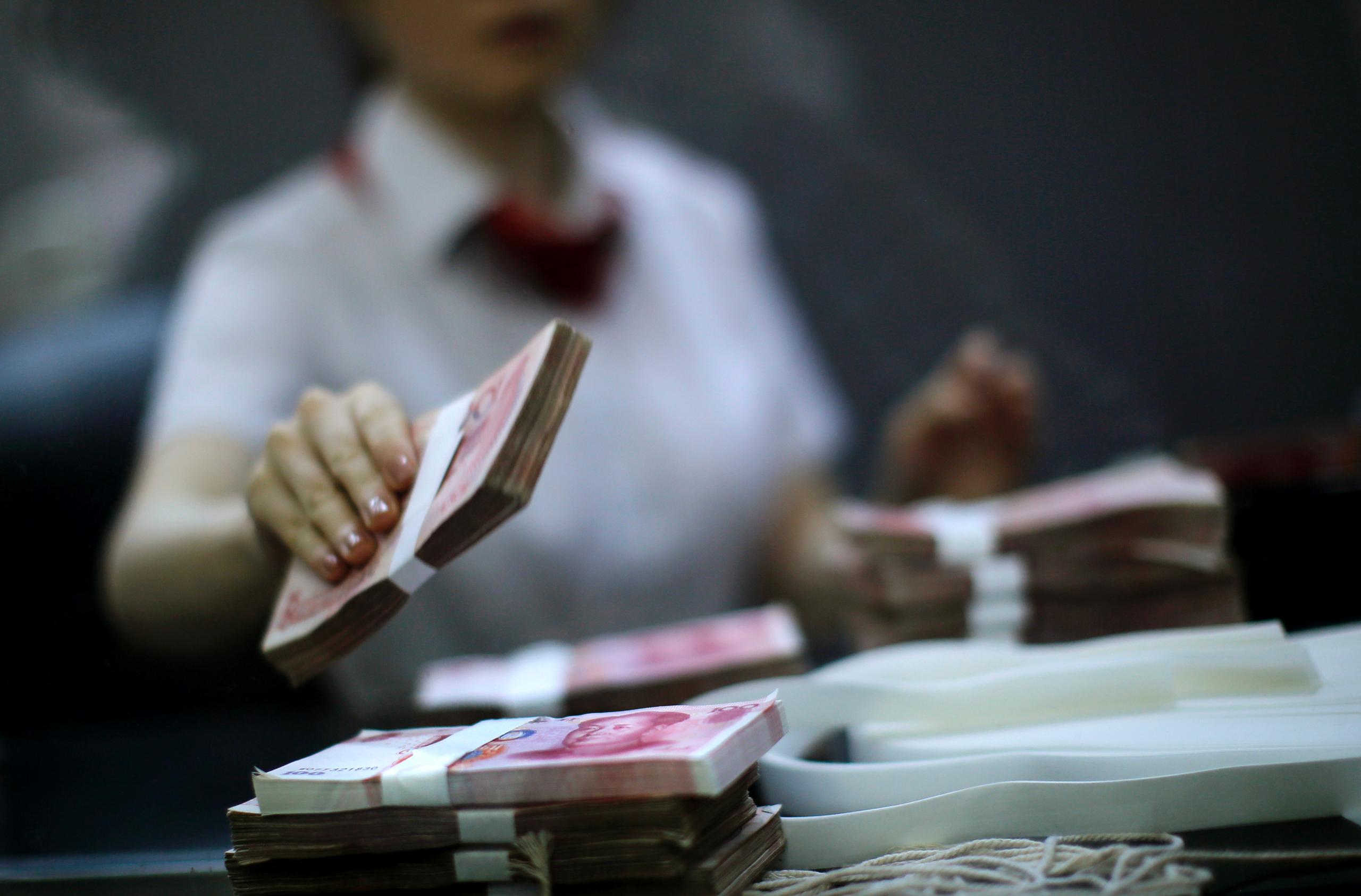Swiss RMB hub dream unfazed by currency scare

Swiss analysts are taking a positive view of the recent renminbi devaluation. The recent fluctuations of the Chinese currency and stock market volatility have not dampened Switzerland’s dream of becoming a renminbi trading hub.
Some politicians in the United States lashed out at Beijing for the People’s Bank of China’s decision to let the currency devalue by 1.9% on August 12 – the largest single day slide in decades. But for Swiss observers, it demonstrated China’s commitment to freeing up the currency to market forces.
Whilst only a small step in this direction, it was also viewed as significant moment by Cédric TilleExternal link, professor of international economics at the Graduate Institute Geneva. Rather than being an aggressive attempt to bring down the price of Chinese exports, Tille saw the move as a rational mirroring of slowing Chinese economic output and the subsequent stock market sell-off.
By allowing its currency to follow the markets, the Chinese authorities were showing a willingness to loosen their iron grip on the currency’s fortunes.
“It is a move towards a more market determined currency, even though we are quite far from seeing full flexibility yet,” Tille told swissinfo.ch. “The fact that the currency has become more flexible and market determined will be a positive for Switzerland.”
With Switzerland poised to take on the role of a global RMB trading hub, the Swiss financial markets have reacted positively so far. “This is a sign that China wants to be integrated further in the foreign exchange system,” Julius Bär External linkbank’s Jiazhi Chen Seiler told swissinfo.ch. “The authorities are overlooking short term volatility for long term benefit.”
“China, and Asia in general, will be the market of the future,” UBS bank chairman Axel Weber said at an industry conference in Frankfurt on Thursday. “Every three months we travel to China to ask the government and the central bank for more balance sheet volume.”
Chinese bank on Swiss soil
A high-ranking delegation from the Swiss financial centreExternal link travelled to China this week to further pursue Switzerland’s capacity to trade in renminbi. Last year the Swiss National Bank (SNB) External linksigned a deal with its Chinese counterpart to allow for currency swaps between the two countries.
In January this year, it was announced that the China Construction Bank would be seeking a license to set up in Switzerland to facilitate those swaps. It is rumoured that the bank may be installed by the end of September.
“Investors would then get access to the second largest bull market in the world [behind the United States] with exposure to domestic Chinese equities, bonds and securities,” Jiazhi Chen Seiler said.
While it is impossible to predict accurately the exact future worth of the renminbi trade, Cèdric Tille believes that its potential is too enticing to be missed. “As a small, yet important global financial centre, Switzerland wants to play a role in a growing segment of the market,” he said. “To miss out would be equivalent to a technology company missing the advent of the smart watch.”
Not for the faint hearted
The key to international acceptance of the renminbi as a freely tradeable global currency – and ultimately acceptance by the International Monetary Fund (IMF) as a reserve currency – is for China to end its policy of strictly controlling the amount of money that can leave the country.
For example, the SNB-China central bank swap deal last year only allows currency swaps to the value of RMB50 billion (CHF7.57 billion or $7.8 billion).
The lifting of capital controls is an essential component for investors to fully tap into the potential gold mine of RMB currency trades. Tille believes traders will have to remain patient and wait for a few years yet until controls are fully lifted.
“The Chinese government has made it clear that the end goal is to make the remnimbi more internationally tradeable, but only in gradual steps. They have no appetite for big bang shocks,” he said. “It is also important for China to continue to strengthen its developing financial market in general so that it can handle the volatility of open trade with the renminbi.”
That volatility was demonstrated last month when a stock market panic that saw the Chinese bourse crash 8% in a single day. Initial investor twitchiness at sinking Chinese economic growth and RMB devaluation was exacerbated by a large number of traders who had bet high volumes on borrowed credit taking fright.
“Trading in any currency involves ups and downs, this is not a business for the faint hearted,” said Tille.

In compliance with the JTI standards
More: SWI swissinfo.ch certified by the Journalism Trust Initiative










You can find an overview of ongoing debates with our journalists here . Please join us!
If you want to start a conversation about a topic raised in this article or want to report factual errors, email us at english@swissinfo.ch.